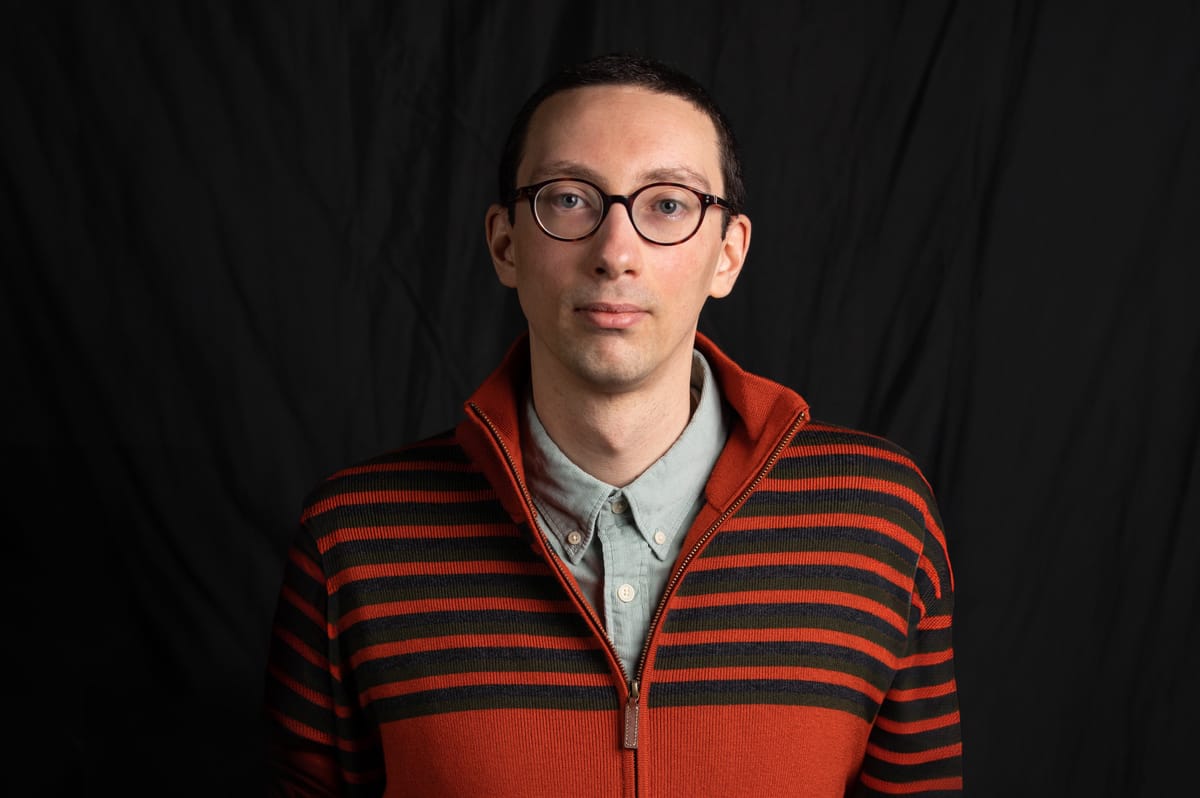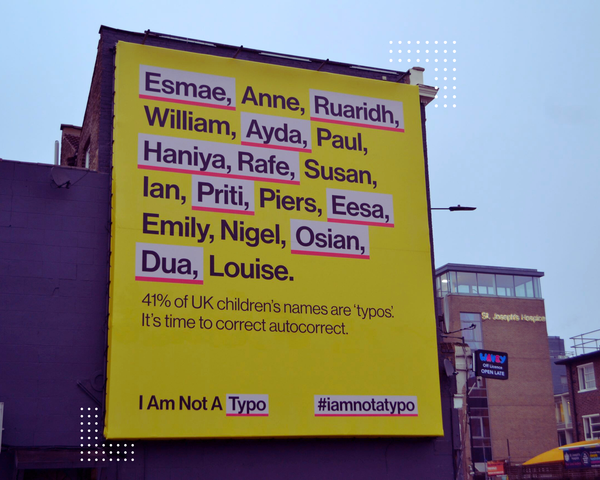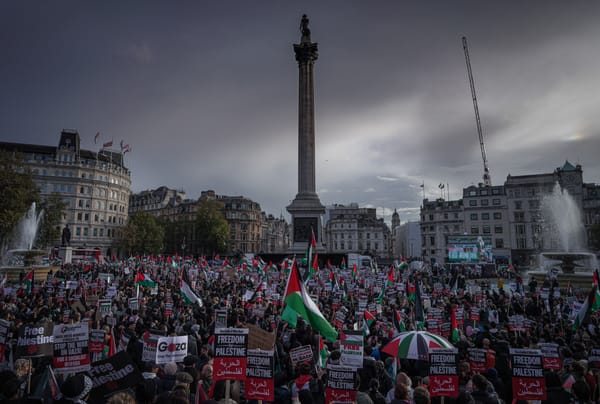Multiple Casualty Incident: An Interview with Playwright Sami Ibrahim
“It’s become a play about why we decide to help people in a country thousands of miles away but also why we help the people right in front of us - how that incredibly human instinct can slowly get distorted and turn into something, perhaps, less than helpful.”

Access the Audio Read version of this article directly on Spotify for Podcasters.
“It’s become a play about why we decide to help people in a country thousands of miles away but also why we help the people right in front of us - how that incredibly human instinct can slowly get distorted and turn into something, perhaps, less than helpful.”
Where are the limits of help, and the beginnings of harm? Such is the premise of Multiple Casualty Incident, by Sami Ibrahim, hitting the Yard Theatre, Hackney Wick on 27th April 2024. The play, directed by Jaz Woodcock-Stewart, centres around a group of individuals in a London training centre, preparing to help people in crisis on another side of the world.
Going right to the heart of humanitarian crises, Multiple Casualty Incident transcends geographic boundaries to explore the complexities of aid work where personal motivations clash with the pursuit of justice, colleagues find themselves entangled in expected relationships, the lines between duty and desire are blurred, and the stark realities of aid work are revealed.
Luca Kamleh Chapman - who appeared in Sami Ibrahim’s previous show two Palestinians go dogging at the Royal Court - will play Khaled, alongside Rosa Robson (Don Quixote, Barbican Theatre) as Sarah, Mariah Louca (The Doctor, Almeida) as Nicki and Peter Corboy (Ulysses, Jermyn Street Theatre) as Dan.
We talked to writer Sami Ibrahim, a Theatre Uncut’s Political Playwriting Award winner, Olivier Award nominee, writer-in-residence at Shakespeare’s Globe and on attachment at the National Theatre Studio, about Multiple Casualty Incident, the themes it explores, as well as his creative process.
- Please tell us about yourself, and what led you to writing Multiple Casualty Incident.
I’m a playwright and have had a few shows on around London over the last few years - including a play that waded into the middle of the politics of Israel-Palestine at the Royal Court (two Palestinians go dogging) as well as a reimagining of Ovid’s Metamorphoses at Shakespeare’s Globe. Multiple Casualty Incident has been on the back-burner for a while, slowly developing - I think - since about 2019.
The first seeds of the show came from a conversation with an actor friend. His job-on-the-side was sourcing groups of actors to participate in training sessions for a company which prepared people to work abroad, usually in refugee camps and conflict zones. The actors were rounded up, driven to a training centre somewhere in rural Oxfordshire and asked to role play for the day as an “angry single mother”, an “intimidating border guard” or a “sexually aggressive village elder”. My friend was always worried because the actors were being encouraged to behave inappropriately or aggressively and yet there were no guidelines for what would happen if one of the actors - or one of the trainees - took things too far. It all sounded haphazard and dangerous and problematic - and I couldn’t stop thinking about it. I asked him to send me examples of the role plays the actors were being asked to do and, from that, I could feel I had the building blocks of a play.
- What does your work centre around, what themes do you explore and why?
A lot of the time, I’m interested in exploring big and small ideas all at once - and am particularly interested in how messy individuals try to fit into huge systems and structures. With this play, I started off thinking I was writing something about charities and particularly about how western charities interact with and attempt to help - and sometimes exploit - other countries. And I definitely think those ideas are still in the play but, I hope, what I’ve become interested in is the characters and how they all relate to the question of helping others. It’s become a play about why we decide to help people in a country thousands of miles away but also why we help the people right in front of us - how that incredibly human instinct can slowly get distorted and turn into something, perhaps, less than helpful.
Beyond that, in theatre especially, I’m always fascinated by what an audience is being asked to look at on a stage. For instance, this is a play about some characters training to work in a Middle Eastern refugee camp. But the idea of writing a play about aid workers in an actual refugee camp makes me feel slightly nauseous: it maybe feels a bit too voyeuristic, the idea of literally trying to represent a camp on a stage. Whereas the idea of showing a group of aid workers imagining a refugee camp through role plays feels so much more exciting to me. With a bit of luck, it allows the play to deconstruct the images and stereotypes an audience might come into the theatre with.
- Has your process been different this time around with Multiple Casualty Incident?
No, this one seems to have fitted into my usual pattern: I spend forever and a day writing a play - agonisingly going through redraft after redraft - before getting to the end in what always feels like a sprint finish. The redrafting process normally consists of me taking a bit of a stab in the dark with each draft - trying something, refining it, scrapping it, starting again. This one took a particularly long time but I think that’s becoming fairly common!
- Describe Multiple Casualty Incident in 3 words!
Strange. Disturbing. Sexy*. [*or maybe deeply unsexy, we’re still figuring that out in rehearsals]
- How have you been working together with director Jaz Woodcock-Stewart to bring the play to life?
Really wonderful so far. Jaz has such a clear vision when directing a play and it often feels like the opposite of how I work: I tend to write something because I don’t have any clear answers and that means I’m never particularly coherent when trying to express what a play means or what I want a play to do. But Jaz is incredibly clear-thinking, especially when it comes to thinking about how a play lands with an audience. I think she’s brought together a really brilliant team and a great cast so, ultimately, it’s been a load of fun seeing how people have responded to the play and brought it to life.
- What does the play mean to you?
The characters certainly mean a lot to me - however flawed or difficult they are, I’ve sat with them for years and have started to really care for them. One of the characters - Khaled - is British, from a Middle Eastern background, going into training in order to work in a Middle Eastern refugee camp. And, tied up in his story, are loads of questions about how he views his identity, what his relationship with his background is and how that ties into his desire to help people from the same part of the world as him. There’s so much in there about how Khaled feels responsible and feels like an imposter all at once. And I don’t think I have any clear answers to all those questions rattling around in his head but, hopefully, the play is expressing the difficulty of navigating those ideas which, in turn, is expressing something about how I see the world. I suppose it means a lot to be able to put all that onto a stage in a way that I don’t think is seen very often.
- What are the main takeaways you would like the audience to get from seeing the play?
I know what I think the play is about but I don’t want to dictate that to an audience - not least because I hate the idea that a play somehow has all the answers and an audience is there to learn those answers. I suppose I would like an audience to question and prod some of their assumptions about charity and the way the West attempts to help the rest of the world. But that all sounds a bit intellectual. On an emotional level, I think I’d just like an audience to be drawn into a tense and strange story about Khaled and the rest of his training group getting carried away as they role play trying to provide aid to a refugee camp.
- Anything else you would like our readers to know?
The play’s funny! And romantic! I’ve made it sound incredibly serious and self-important. And don’t get me wrong, I love a serious and self-important play. But, I hope, it’s also a play filled with funny and silly and heart-filled moments between characters - as well as a load of violence and dread just to top it all off.
For more information about Multiple Casualty Incident at The Yard Theatre from 27th April to 8th June 2024, check out theyardtheatre.co.uk/multiplecasualtyincident





